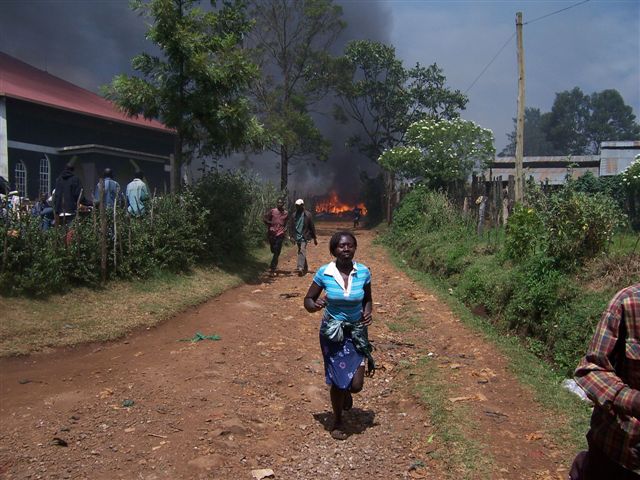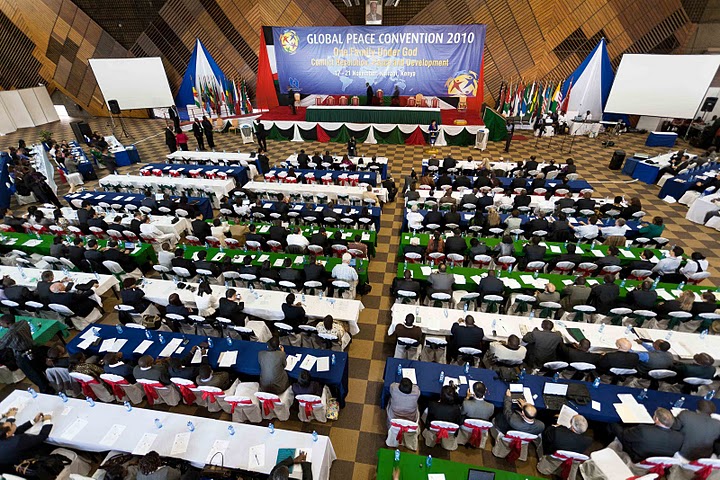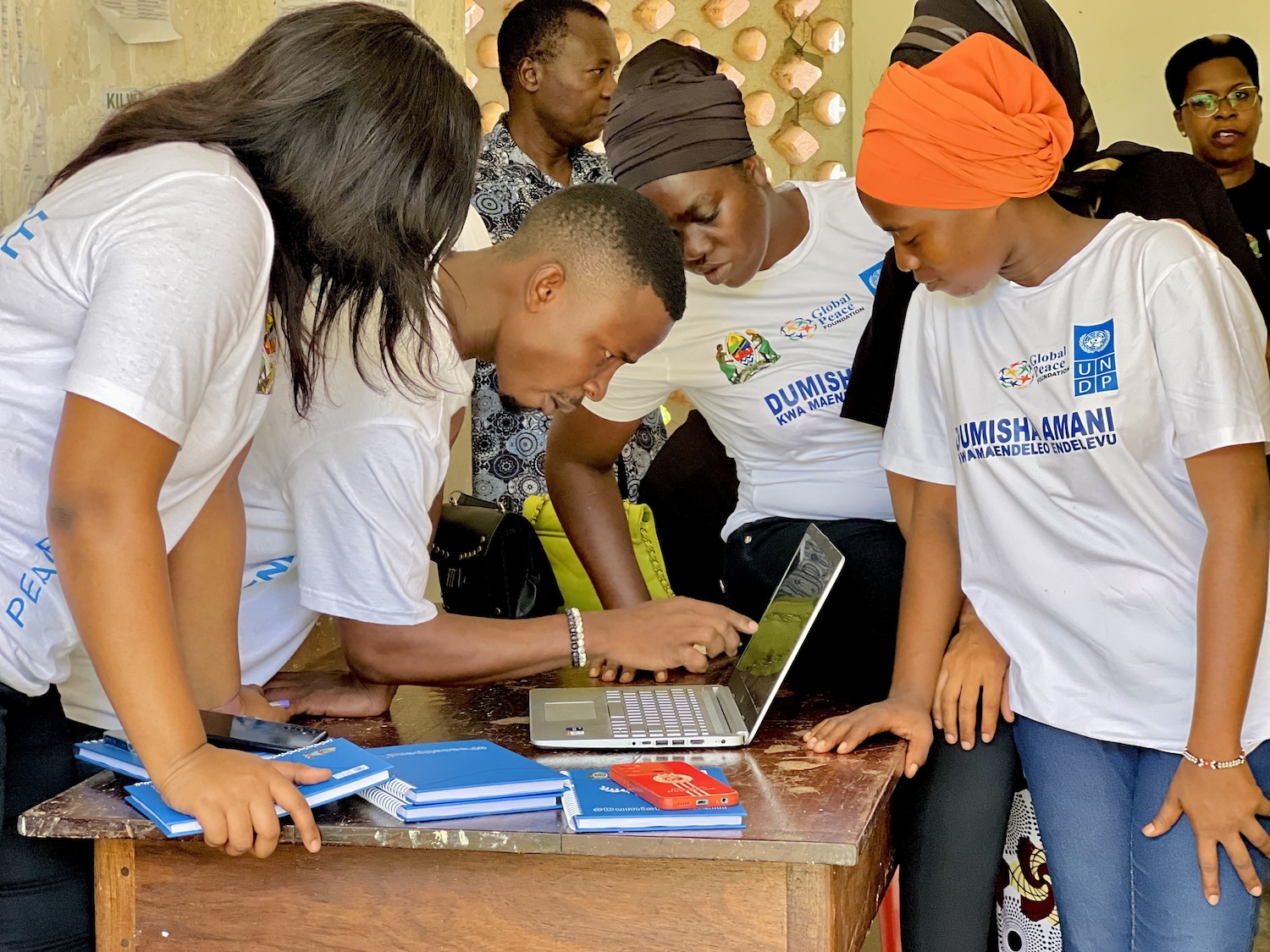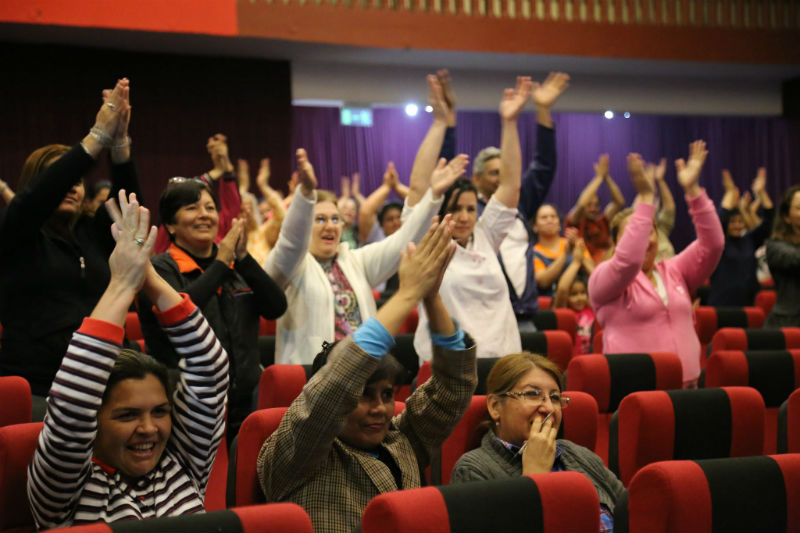
Ethnic fighting in Nairobi following the disputed 2007 elections. (IRIN)
Conflict based on religious and ethnic identity has been endemic throughout history. In the twentieth century advances in the technology of warfare, escalations in tribal animosities, and novel ideological justifications have dramatically raised the human cost of identity-based conflict.
In November 2010, the Global Peace Foundation convened a landmark Global Peace Convention, “One Family under God: Conflict Resolution, Peace and Development,” to try to answer the threat of identity-based conflict in the twenty-first century. The Convention was the second annual meeting by the Global Peace Foundation which was founded in 2009 by Dr. Hyun Jin Moon.
Convened in Nairobi, Kenya, the conference was the culmination of a number of GPF peace initiatives in Kenya that followed the political, economic, and humanitarian crisis that erupted in 2007 and 2008 in the wake of the disputed presidential election. The convention significantly won the backing of Kenya’s President Mwai Kibaki and Prime Minister Raila Odinga, who currently govern the nation through a power-sharing agreement.
In addition to keynote addresses by the president, vice president, and prime minister, who called upon Kenyans to rise above ethnicity and embrace the promise of Kenya’s newly adopted Constitution, the convention drew leading scholars and human rights advocates from Europe, Asia, and North America.
Addressing delegates from 40 nations, Dr. Gregory Stanton, a research professor at the Institute for Conflict Analysis and Resolution at George Mason University and founder of Genocide Watch, said that the scale of mass murder reached a new high in the twentieth century, with more than 280 million people murdered by their own governments, more than all the wars combined.
“I propose today that we take up Kenyan President Kibaki’s challenge to this Convention, ‘to establish a global coalition of faith based and educational institutions to prevent genocide and build a peace world.’”
“Genocide is not unpredictable, like a volcano or earthquake,” Dr. Stanton said. “I have studies genocide since 1980 when I went to Cambodia and walked through the killing fields and felt God’s call at that time to establish the Cambodia Genocide Project; in 1994 I went to Rwanda and wrote the UN Security Council Resolutions that created the international criminal tribunal for Rwanda. But punishment comes too late; we need to prevent genocide before it happens.”
The 8 Stages of Genocide
Stanton said there is a pattern which he calls the eight stages of genocide. (see the 8 Stages of Genocide). At each stage, from “classification” to “denial,” there are clear interventions that can disrupt the process. The media, religious organizations, law enforcement, and international human rights institutions, as well as ordinary citizens, can and must assume greater responsibility to ensure that the systematic murder of a segment of people can be halted and the perpetrators held accountable. “I propose today that we take up Kenyan President Kibaki’s challenge to this Convention, ‘to establish a global coalition of faith based and educational institutions to prevent genocide and build a peaceful world.’ We have forgotten that the same God made us all, that we are one family under God.”
Dr. Lawrence Bomett, Kenya’s Ministry of National Cohesion, used the forum to reflect on the post-election violence, the worst ethnic fighting since Kenya’s independence in 1963. At the heart of the turmoil, Dr. Bomett said, was discrimination. This was experienced in many forms, and “one of the tasks of the Ministry is to ensure that no jobs or resources are given to one tribe or one group, or one religion, so that any institution that is public can full represent the diversity of Kenya, to make sure that we are giving everybody a chance.”

A woman flees the ethnic fighting in Eldoret, Kenya in 2008. (IRIN)
Dr. Joseph Agwata, senior lecturer for Advanced Studies in Environmental Law and Policy at the University of Nairobi, emphasized that women were often overlooked both as victims of violence and as a vital resource in the diminishing of conflict in the world. He urged that Kenyans do away with ethnic designations in broadcasting and in political discourse, and accept the spirit of the new Constitution which treats all Kenyans as one people.
Dr. Eva Latham, the president of Human Rights Teaching International in the Netherlands, emphasized the significance of the United Nations Universal Declaration of Human Rights, drafted by the newly formed world body in 1948. “For me this charter represented a second chance for humanity,” she said, “to recognize that we are all children of God. With the advances in education, why is it that young people are not educated about human rights, and about the contents of this UN Declaration? It was because of this that I founded the Human Rights Teaching International.”
Dr. Latham said she disliked the term “identity,” likening it to the type of car one drives. What is relevant, she said, is that the car functions to provide transportation within the boundaries of traffic laws. Likewise, what is relevant in society is not one’s race, belief system, or other restrictive identity, but that people adhere the norms and values of that society. “It may be important to you but it is not relevant to the lawful operation of a functioning society,” she said. “What is relevant is to adhere to the universal standards of human decency.”

The 2010 Global Peace Convention
Hon. Kjell Magne Bondevik, founder of the Oslo Center and former Prime Minister of Norway, congratulated Kenya for the advances it has made following the successful referendum in August 2010 that adopted the new Constitution. This is a time where responsible political leadership is needed, he said, “leadership that is committed to cross-ethnic peace, to creating political solutions and policies that make a difference in peoples’ daily lives, create growth in jobs, reduce poverty, and promote equality and social justice.” The likelihood of ethnic conflict is seriously reduced when government policies are seen as improving people’s lives, he said.
The 2010 Global Peace Convention, hosted November 18-20, 2010, concluded with the Global Peace Festival Africa on November 20 at Nyayo Stadium in Nairobi.



